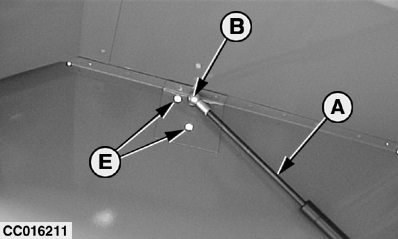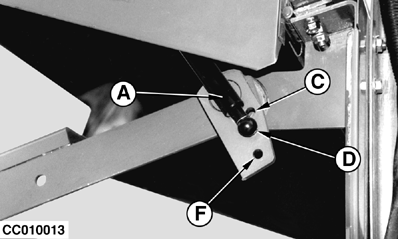Increasing Brake Bar Tension
|
|
|
|
|
|
|
In certain conditions, friction between net roll and stainless steel supports may be too low, causing one or more of the following symptoms:
If any of the above conditions occur:
Increase tension on brake bar by moving gas springs (A) to alternate hole positions.
While relocating gas springs, proceed as follows to prevent binding and make repositioning of springs easier: |
1. Remove gas spring from one side. 2. Reposition other gas spring to desired position. 3. Reposition first gas spring. Normal Gas Spring Position This position corresponds to the lowest brake bar tension.
Optional Gas Spring Position This position increases the brake bar tension.
IMPORTANT: Do not use hole positions (E) and (F) as this will result in a too high net roll brake effect. |
CC,570RB005146 -19-07SEP99-1/1 |


 CAUTION:
Support net wrapping cover while removing and installing gas spring to prevent personal injury.
CAUTION:
Support net wrapping cover while removing and installing gas spring to prevent personal injury.